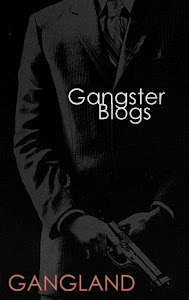GANGWORLD CUSTOM SEARCH

Custom Search
They have exported their gang culture — learned by expatriates returned from undocumented existence in the big cities of the United States — to other countries in Central and South America, re-exporting their influence back to the U.S., moving beyond petty thievery, flashy tattoos and thuggish violence, to drug-trafficking and large-scale extortion.For the last three decades, successive Salvadoran governments have tried to curtail the two Maras. In the 1990s the Salvadoran government instituted a policy that became known as the Mano Duro (Strong Hand), that saw thousands of gang members jailed. But Mano Duro has not stopped the gangs. Corruption at the highest levels of government has allowed many leaders to go free or conduct business from behind bars. Saul Turcios Angel, also known as the "Pitbull," ran a kidnapping and extortion ring as part of Mara Salvatrucha. He escaped from a Salvadoran prison last year and was apprehended in Nicaragua earlier this week. Turcios faces possible extradition to the U.S. to face charges that, while behind bars, he phoned fellow gang members in a Maryland suburb, ordering them to commit murders and other crimes. Earlier this week as well, gang members are suspected of killing the photographer and documentary filmmaker Christian Poveda, who spent years chronicling their activity and evolution. Poveda was shot in the head, killed, say police, by the very gang members he had been filming earlier in the day. Gang related deaths average about 10 a day throughout the country, according to local newspaper accounts, which splash news of the mayhem across their front pages daily.While some gang members say they are virtual prisoners of their poor neighborhoods, unable to leave the slums because of police crackdowns and threats from rival gangs, gang culture continues to spread. It has moved well beyond its original bases in the impoverished suburbs of the capital like Apopa and Soyapango. It has now taken root in San Miguel, the country's second-largest city, and the port of La Union, which they now utilize for trafficking drugs abroad. Nowadays, gangs threaten businesses large and small, demanding kickbacks for not shutting them down. They are even said to force the country's public transportation system to pay millions of dollars annually in protection money. Many observers believe that newly elected Salvadoran President Mauricio Funes will ease the Mano Duro policy and, instead, implement social programs aimed at dissuading the country's youth into joining gangs. But, says Samuel Logan, an expert on Latin American gang culture, "The current administration still has not made an effort to to adopt a less punitive position in dealing with the gangs." Ironically, one of the loudest advocates for rolling back Mano Duro ways Poveda, who photographed the El Salvaor civil war for TIME in the 1980s. Poveda said in a recent interview that El Salvador's political corruption and abject poverty made most gang members "victims of society."
Subscribe to:
Post Comments (Atom)













0 comments:
Post a Comment